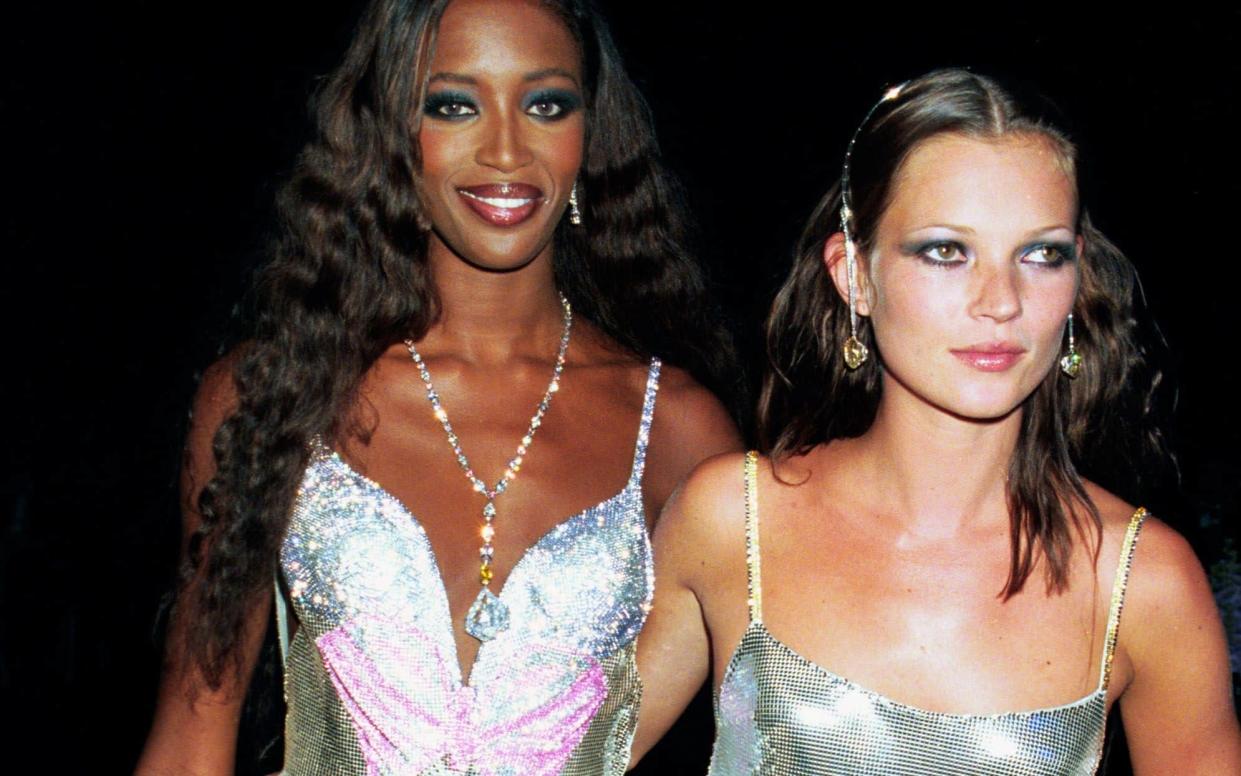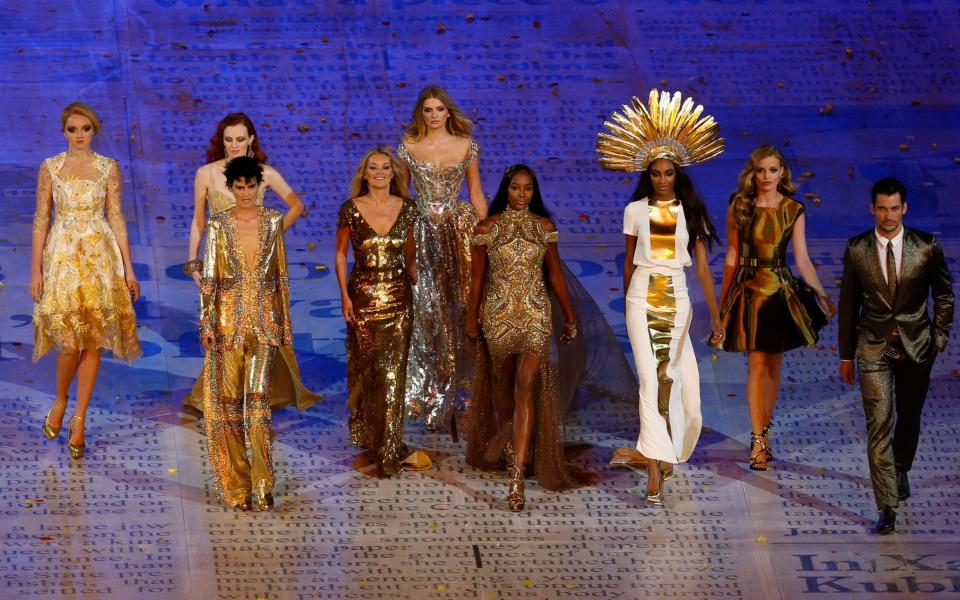Is this the end of the great British supermodel?

No European country has produced as many iconic supermodels as Britain. Sixties fashion was defined by Twiggy and Jean Shrimpton, and Cool Britannia could never have reached the heady heights it did without Naomi Campbell, Kate Moss and the late Stella Tennant. Cara Delevingne’s extraordinary fame was a precursor to the American Hadid sisters while David Gandy is widely agreed to be one of the best looking men on the planet.
But now, Brexit could threaten to derail the industry and herald the end of the great British supermodel. Fashion Roundtable’s open letter to the Government last month was signed by Twiggy and Yasmin le Bon, among many other models, and detailed how detrimental the Brexit deal has been for international work. Afterwards Le Bon said the ability to travel freely in the EU for work was “crucial” for professionals like herself.
Work permits are the crux of the matter: British citizens cannot apply for an EU-wide Schengen visa so have to navigate the small print of 27 different countries if they want to do a shoot in Europe – travelling to Spain on a two day job, for example, requires a work permit, a visa and a trip to the Spanish embassy in London.

To make matters worse, unlike other more corporate industries, fashion shoots rarely come with a month or even a week’s notice to get paperwork in order. “A model can be booked the day before a shoot – and as late as 3 or 4pm,” says John Horner, the managing director of Models 1 and chairman of the British Fashion Model Agents Association. “He or she will hop on the Eurostar the next morning and start work [in Paris] by 9am. There is simply not enough time to get any sort of visa which means anyone putting together a last-minute job will know they have to bypass British talent.”
Unfortunately this means our models could lose work in Paris and Milan – cities that are home to the world's most important fashion weeks and biggest designer brands. That not only deprives them of at least 25 percent of their income, it also prevents them from meeting the casting directors, designers and brand managers with the power to catapult them to fame.

“There’s no doubt that Paris and Milan are more important than London and New York when it comes to raising a model’s profile so it’s no good saying they will have easy access to other countries,” says Horner. “We won’t stop working with British models, of course, but it does make them less attractive to the industry as a whole. It’s insanity and the Government has no excuse for doing this to us.”
It also means that international models are less likely to base themselves in London, which will have a knock-on effect on many other professions. “Where the models are located has a massive impact on where the creative side of the industry will congregate,” says Tamara Cincik, the founder of Fashion Roundtable.
“If models cannot get in and out of a country easily then the stylists, PRs and photographers will decide not to remain in the UK, as the industry will inevitably veer towards Paris for more and more shoots. The UK has always punched above its weight in terms of talent, but there is simply not enough work here for everyone to make a living – and of course, any loss of work in turn relates back to a loss of taxable income for HMRC.”

Ironically, European models have fewer problems working here, meaning they have a distinct advantage over us. Yes, there are constraints for anyone with an EU passport coming to do a shoot in Britain, but getting a permit for a one-off job is relatively straightforward. “It can get a bit complicated,” says Horner, “but nothing like what our models face. We’ve put European-wide immigration specialists and lawyers on it but we’ve realised there is no way around the mountain of paperwork required.”
For European models wanting to stay in Britain for a few weeks or months, they’ll need a tier five visa and proof they’re working regularly, which is more difficult. This means events like London Fashion Week, which generates £50 million for the city and £270 million for the national industry annually, will get more complicated to organise. Equally, brands that once shot big campaigns in Britain are likely to opt for a pan-European team and a location across the Channel.

In order to smooth over these issues, various modelling agencies – as well as record labels who need their artists to be able to tour in Europe – have asked the Government to push the EU to create a 90-day ‘creatives visa’ for British citizens that allows them to work across all 27 countries on a short-term basis, but not to move there. They have also asked for Britain to implement a similar policy regarding European talent.
So far, Downing Street and Brussels are yet to find a solution. The pandemic has, of course, distracted the Government and obscured these issues, as models of all nationalities face quarantine if they cross international borders and so are unlikely to do so right now. It is only once the world opens up again that we will truly see the impact this is having.
And for the general public, it will take even longer. Big names such as Kate Moss, Cara Delevingne and Jourdan Dunn will be fine – they are famous enough for brands to work around visa issues to get them on set. But up and coming models who aren’t yet established may well see their careers curtailed – and at some point we will realise that British fashion isn’t the same without new waves of British supermodels to fly the flag.
For more news, analysis and advice from The Telegraph's fashion desk, click here to sign up to get our weekly newsletter, straight to your inbox every Friday. Follow our Instagram @Telegraphfashion

